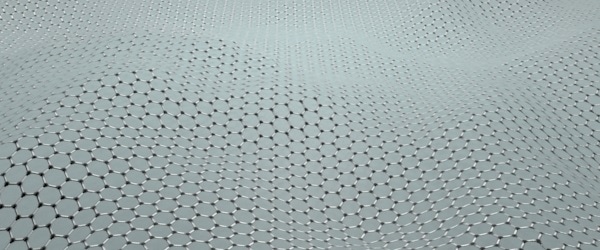Nov 25 2016
Biolin Scientific, an instrumentation company, offers to its customers a graphene oxide Q-sensor developed in collaboration with the ICN2 Nanobioelectronics and Biosensors Group headed by ICREA Professor Arben Merkoçi. This collaboration, facilitated by ICN2 Knowledge and Technology Transfer Department, allowed the commercialisation of a product co-developed at ICN2.

A graphene oxide (GO) sensor co-developed by the ICN2 Nanobioelectronics and Biosensors Group, led by Prof. Arben Merkoçi and his PhD student Luis Pires, is offered since middle September by Biolin Scientific, a prestigious instrumentation company devoted to the production of analytical devices. This synergy between the research and development was facilitated by ICN2 Knowledge and Technology Transfer Department, which established the contact between the Institute and the company to discuss the application of the graphene patterning technology in the field of QCM-D sensing. This milestone is one of those rare success cases where a technology developed by ICN2 quickly reaches the market.
The achievement
Biolin Scientific, a leading Nordic instrumentation company, develops products based on nanotechnology and advanced measurement techniques. The company has a line of instrumentation called Q-Sense, which deals with instruments that enable real-time analysis of surface-molecule interactions with nanogram precision for a wide variety of samples and measurement conditions. Biolin Scientific wanted to incorporate a graphene coated sensor in its Q-Sense sensors list. The collaboration between ICN2 and the Nordic company became plausible because the Institute already had expertise transferring graphene to the surface of interest.
Currently, the company has a list on its website of sensor coatings, such as Aluminium, Cobalt, and more. Since middle September, GO coating material developed by ICN2 is also in the list. The Q-Sense GO sensor enables interaction studies of GO with various analytes (measured substances) of interest and may open the way to various applications with interest for diagnostics, safety/security and environmental monitoring.
Scientific basis
The ICN2 Nanobioelectronics and Biosensors Group, headed by ICREA Professor Arben Merkoçi, in collaboration with Biolin Scientific use a quartz crystal microbalance containing patterned graphene, a system that measures mass variation. The device measures frequency changes of a quartz crystal piezoelectric resonator when it is disturbed by the addition of a small mass (DNA, protein, virus, bacteria, etc.) or any other tiny object to be quantified.
The technology of graphene patterning, already patented by ICN2, takes advantages of wax-printing onto nitrocellulose membranes followed by filtering of exfoliated graphene and a pressing process onto any solid surface.
A product with ICN2 technology
The collaboration between ICN2 Nanobioelectronics and Biosensors Group and Biolin Scientific is a success coordinated in collaboration with ICN2 Knowledge and Technology Transfer Department, headed by Jordi Reverter. Q-Sense graphene oxide sensor is one of the firsts products based on an ICN2 technology that is able to reach the market. There are, for sure, more to come thanks to the ICN2 Groups and Departments committed with facilitating the exploitation of research results by transferring knowledge and technology developed in-house to industry worldwide.